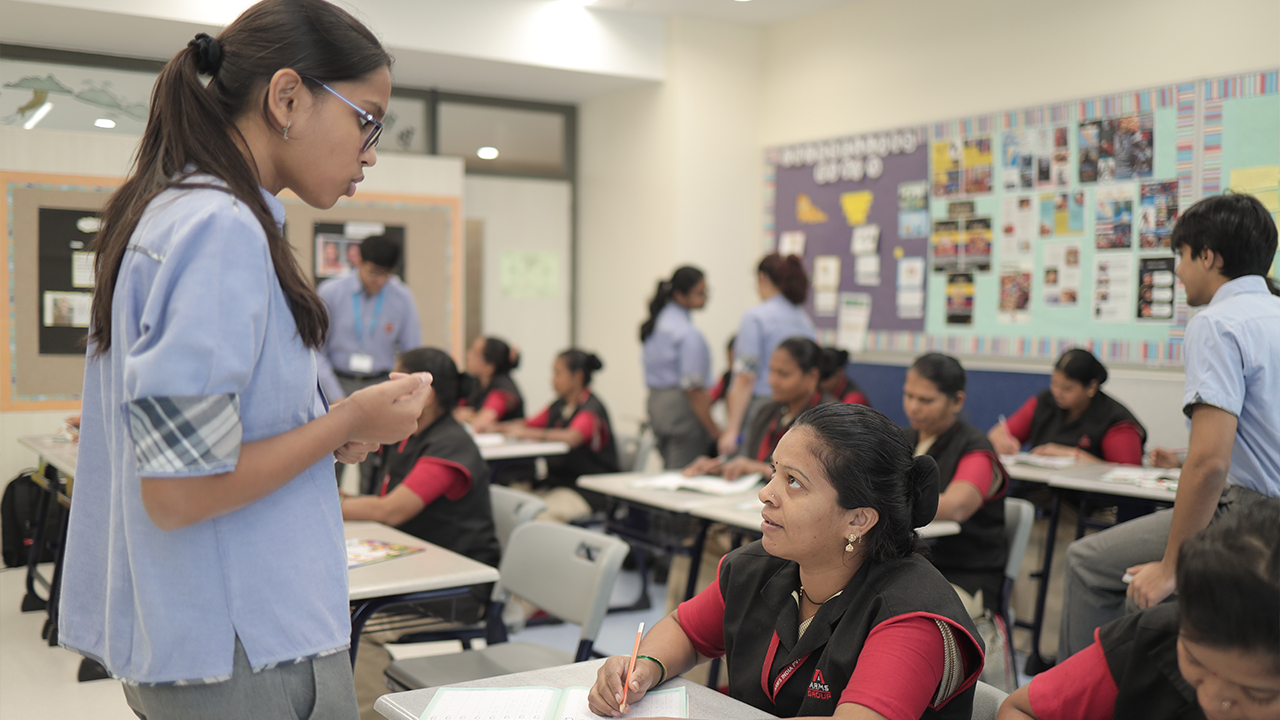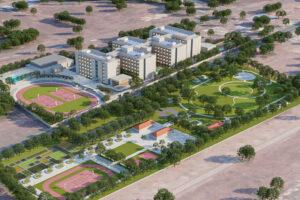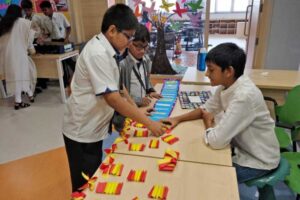Blogs
IBDP and the future of Education at Chatrabhuj Narsee School

In a world of rapid change and increasing global interconnectedness, providing students with a robust, internationally recognized education has become paramount. The International Baccalaureate Diploma Program (IBDP), renowned for its academic rigor and holistic approach, stands as a beacon in preparing tomorrow’s leaders. Chatrabhuj Narsee School (CNS) in Mumbai, India, is a shining example of an institution embracing the IBDP to shape the future of education with exceptional results.
The IB Difference
What sets the IBDP apart from traditional educational models? Here are some key pillars:
• Inquiry-Based Learning: Students are not simply passive recipients of knowledge. The IBDP fosters a spirit of curiosity, encouraging students to ask questions, conduct research, and form their own well-reasoned conclusions.
• Global Perspective: The curriculum breaks down disciplinary silos and fosters an understanding of the world from multiple perspectives. Students develop cultural sensitivity, international awareness, and the skills to collaborate across borders.
• Character Development: Beyond academics, the IBDP instills fundamental values like empathy, critical thinking, creativity, and resilience. Through the Creativity, Activity, Service (CAS) component, students engage in projects that benefit their communities and the world around them.
• University Preparedness: IB graduates consistently demonstrate exceptional success in higher education, equipped with the research, analytical, and communication skills that set them apart in a competitive landscape.
Chatrabhuj Narsee School’s commitment to the IBDP isn’t merely about offering a prestigious credential; it’s about a profound transformation in the educational approach itself. Here’s how CNS is leading the way:
• Faculty Excellence: CNS understands that teachers are the heart of any successful program. Their IBDP instructors are highly qualified, passionate educators, constantly enhancing their expertise through professional development.
• Student-Centric Learning: Students aren’t treated as empty vessels to be filled with information. Instead, the focus is on creating dynamic learning environments where student voices are valued, and diverse learning styles are supported.
• Innovative Assessment: The IBDP’s diverse assessment model goes beyond rote memorization. Students demonstrate their understanding through essays, presentations, research projects, and internally and externally assessed examinations.
• Real-World Connections: The IBDP curriculum encourages students to connect their learning to the world around them. Through service projects, internships, and real-world problem-solving, CNS students apply their knowledge to make a tangible difference.
The Impact on Students
The benefits of an IBDP education at an institution like Chatrabhuj Narsee School go far beyond university acceptance rates (though they are impressive!). Consider these impacts:
• Global Citizens: CNS graduates are equipped to thrive in a diverse and interconnected world. They understand complex issues, appreciate different cultures, and are prepared to lead with empathy and understanding.
• Confident Learners: IBDP students develop the ability to self-direct their learning, take intellectual risks, and persevere through challenges. They emerge as confident and self-assured individuals.
• Well-Rounded Excellence: While academics are undeniably emphasized, CNS recognizes the importance of a holistic education. Students explore their passions in sports, arts, music, and social action, shaping them into well-rounded leaders of the future.
• A Network of Excellence: Students join a global community of IB alumni, opening doors to opportunities and connections worldwide.
The IBDP isn’t simply a curriculum; it’s a philosophy that aligns with the demands of the 21st century. Chatrabhuj Narsee School champions this holistic approach, empowering students to become:
• Adaptable and Resilient: In the ever-shifting future landscape, the IBDP’s focus on problem-solving and critical thinking prepares students to handle uncertainty and adapt to new challenges.
• Collaborative and Communicative: The interconnectedness of the modern world requires strong communication and collaboration skills, which are fostered in the IB environment.
• Ethical and Empathetic: Through community engagement and global awareness, IBDP students develop into responsible citizens committed to a better world.
Conclusion
Chatrabhuj Narsee School’s dedication to the IBDP is a testament to its vision of creating future-ready students. By fostering inquiry, global-mindedness, and personal growth, CNS is not simply delivering an education; it’s providing a transformative experience that empowers students to reach their full potential and make a meaningful impact on the world.





